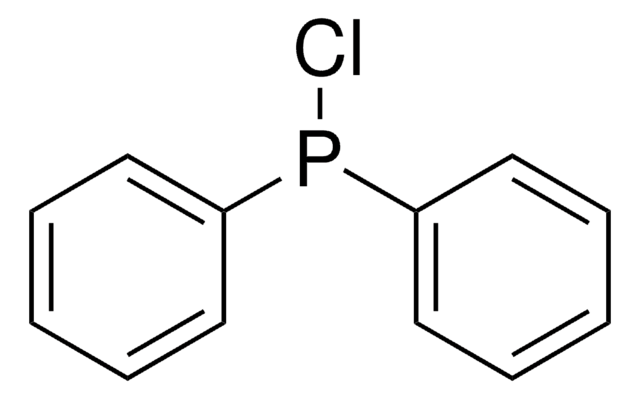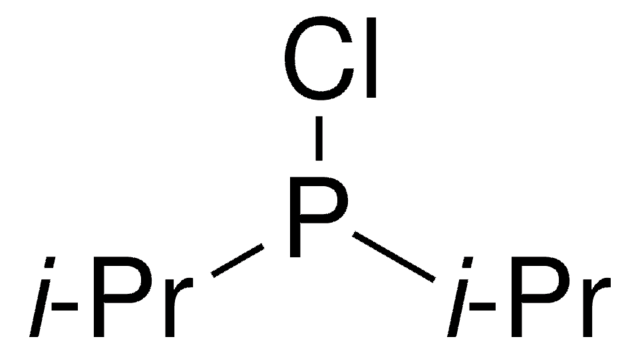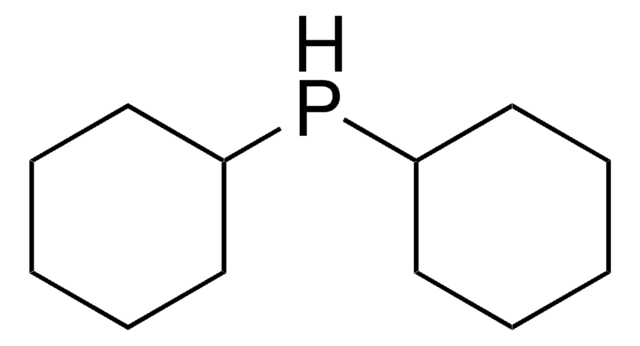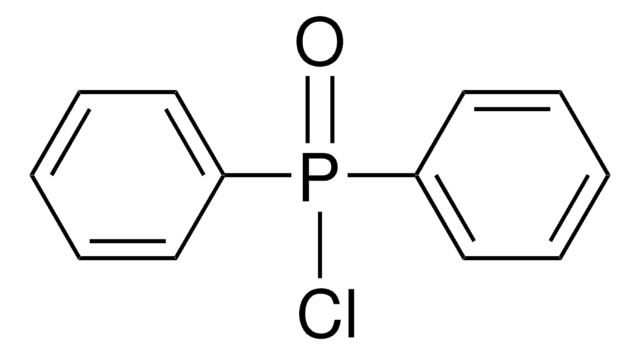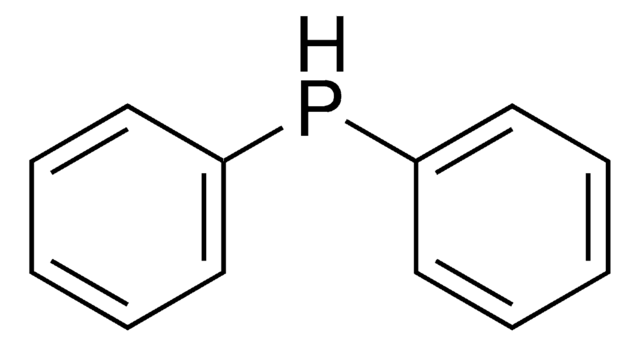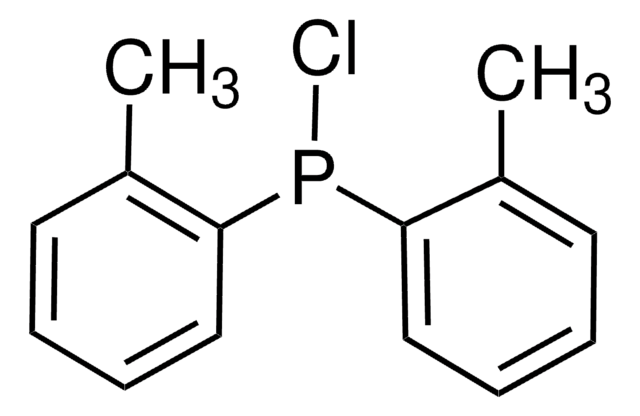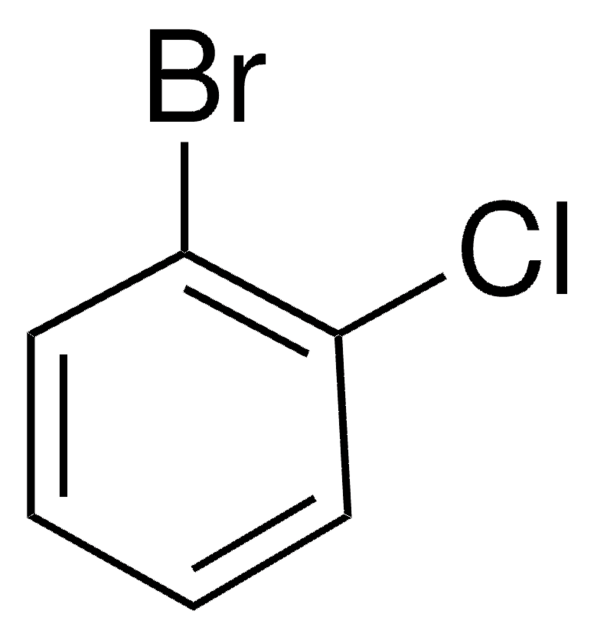481408
Chlorodicyclohexylphosphine
97%
Synonyme(s) :
Dicyclohexylchlorophosphine, Dicyclohexylphosphine chloride, Dicyclohexylphosphinous chloride
About This Item
Produits recommandés
Niveau de qualité
Essai
97%
Capacité de réaction
reaction type: Buchwald-Hartwig Cross Coupling Reaction
reaction type: Heck Reaction
reaction type: Hiyama Coupling
reaction type: Negishi Coupling
reaction type: Sonogashira Coupling
reaction type: Stille Coupling
reaction type: Suzuki-Miyaura Coupling
Pertinence de la réaction
reagent type: ligand
Indice de réfraction
n20/D 1.533 (lit.)
pb
165 °C/12 mmHg (lit.)
Densité
1.054 g/mL at 25 °C (lit.)
Groupe fonctionnel
phosphine
Chaîne SMILES
ClP(C1CCCCC1)C2CCCCC2
InChI
1S/C12H22ClP/c13-14(11-7-3-1-4-8-11)12-9-5-2-6-10-12/h11-12H,1-10H2
Clé InChI
AKJFBIZAEPTXIL-UHFFFAOYSA-N
Application
- 1,2-Bis(dicyclohexylphosphinoxy)ethane ligand by reacting with ethylene glycol in the presence of triethylamine via Michaelis−Arbuzov type rearrangements.
- 1,1,2,2-tetracyclohexyldiphosphine monosulfide ligand by treating with LiS.
It can be also used as a starting material for the preparation of some other ligands such as dicyclohexylphosphine oxide , phosphino substituted N-aryl pyrroles , di-tert-butyl((dicyclohexylphosphino)methyl)phosphine , dicyclohexylcyclopentylphosphine. These ligands are used in Pd-catalyzed cross-coupling reactions.
Mention d'avertissement
Danger
Mentions de danger
Classification des risques
Eye Dam. 1 - Skin Corr. 1B
Risques supp
Code de la classe de stockage
8A - Combustible corrosive hazardous materials
Classe de danger pour l'eau (WGK)
WGK 3
Point d'éclair (°F)
235.4 °F - closed cup
Point d'éclair (°C)
113 °C - closed cup
Équipement de protection individuelle
Faceshields, Gloves, Goggles, type ABEK (EN14387) respirator filter
Faites votre choix parmi les versions les plus récentes :
Déjà en possession de ce produit ?
Retrouvez la documentation relative aux produits que vous avez récemment achetés dans la Bibliothèque de documents.
Les clients ont également consulté
Notre équipe de scientifiques dispose d'une expérience dans tous les secteurs de la recherche, notamment en sciences de la vie, science des matériaux, synthèse chimique, chromatographie, analyse et dans de nombreux autres domaines..
Contacter notre Service technique